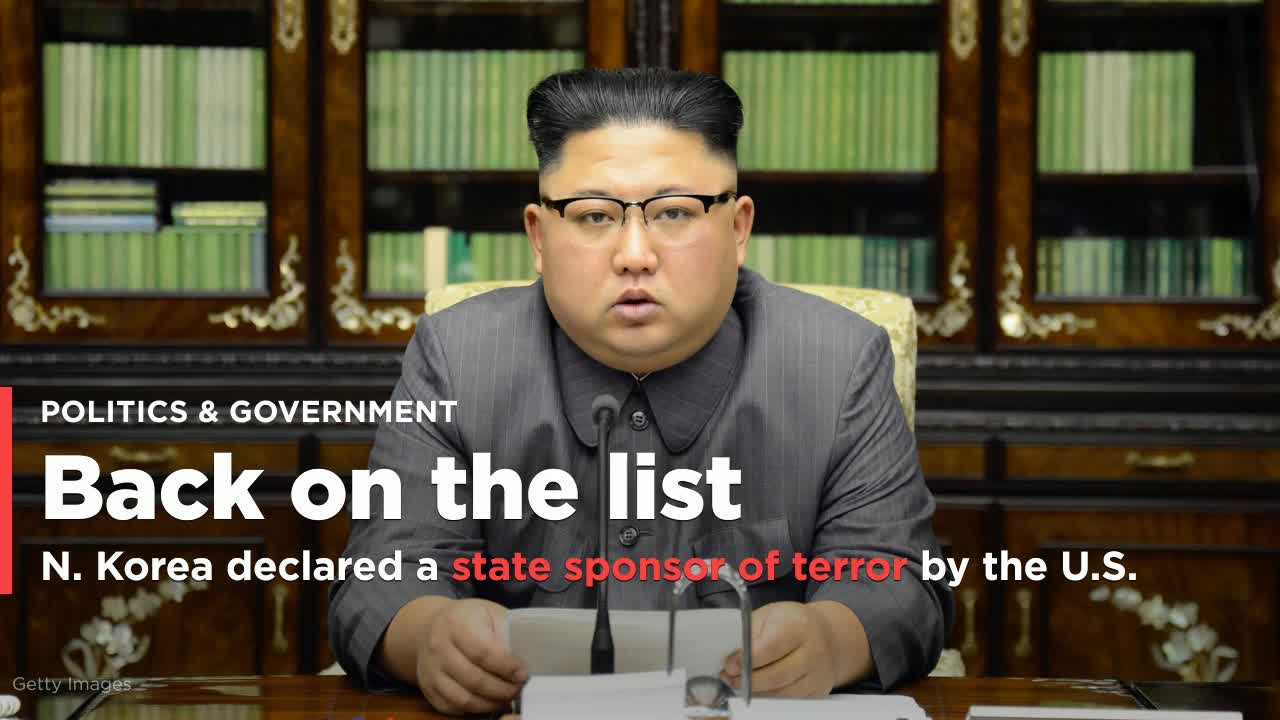
Blacklisted as a state sponsor of terrorism, North Korea’s retaliation is expected to be strong. Crisis management skills will be needed.
After nine years, the U.S. has redesignated North Korea as a state sponsor of terrorism. Lifted from the list of state sponsors of terrorism on October 2008 after agreeing to verify all of its nuclear programs, the North has been placed back on the roster. Once on the list, designated countries face sanctions based on five laws: the Arms Export Control Act, the Export Administration Act, the International Financial institutions Act, the Foreign Assistance Act, and the Trading with the Enemy Act. These laws impose a number of financial and miscellaneous sanctions, including a ban on defense exports and sales, and restrictions on U.S. foreign assistance.
North Korea is already under double and triple sanctions from the international community, so this blacklisting does not practically place any additional sanctions on the country. It is largely a symbolic move to brand the North as a rogue nation; it is also a display of the United States’ determination to continue tightly pressuring North Korea. The goal of the United States is clear: to step up pressure on North Korea until it succumbs. It is also in this context that the U.S. Treasury has decided to release new, additional sanctions that are stronger than ever. While Secretary of State Rex Tillerson said he “wants this solved diplomatically,” it appears his words are nothing more than mere lip service.
It is notable that instead of blacklisting North Korea right after his trip to Asia, Donald Trump waited for President Xi Jinping of China to finish discussing his concerns with Pyongyang. Trump likely relisted North Korea after determining that the special envoy from China had failed to reach any significant agreement on North Korea’s nuclear weapons and missiles. The decisive factor for redesignating the country as a state sponsor of terrorism however, was Kim Jong Nam’s assassination and the death of American university student Otto Warmbier. Public opinion in the United States deteriorated sharply after the latter incident in particular, where the student who was a tourist in North Korea died six days after his release in June following 17 months of captivity.
For the time being, North Korea’s redesignation as a state sponsor of terrorism will have a depressing impact on the Korean peninsula. A strong backlash from North Korea is inevitable, as the listing officially ousts the nation from the international community. Because North Korea considers this action to be an extension of hostile policy by the United States, it may expend even greater effort in nuclear and missile development, which it ironically considers to be its best solution. It needs to see that without a resolution of its nuclear and missile issues, it is going to be difficult not only for its economy, but for its old regime to stay in power.
Our concern in South Korea is the atmospheric shift that may descend on the Korean peninsula; from openness to dialogue to security crisis. Especially because Xi Jinping’s special envoy has failed to reach any significant agreement with the North, the crisis surrounding the Korean peninsula is expected to heighten. If we take a look at the precedent set in the past by the clash between the Kim Jong Un regime and the Trump administration, we can see that the issue has taken a turn for the worse. Under the current strategy in which we are following up North Korea’s provocations with retaliatory measures, it is impossible to solve the inherent problem. It’s time for our governments to be more flexible in designing new methods to manage the crises at hand.

Leave a Reply
You must be logged in to post a comment.